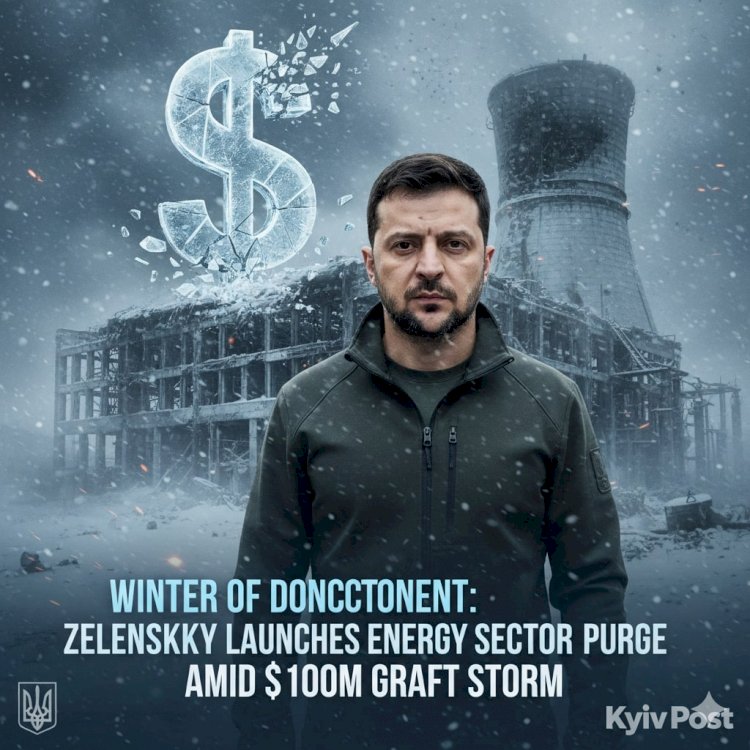Winter of Discontent: Zelenskyy Launches Energy Sector Purge Amid $100M Graft Storm

As Russian missiles rain down on Ukraine's battered power grid and families brace for another blackout-plagued winter, a seismic corruption scandal has exploded at the heart of Kyiv's wartime government. On November 16, 2025, President Volodymyr Zelenskyy fired the opening salvo in what he calls a "complete overhaul" of the nation's energy giants—starting with the nuclear powerhouse Energoatom—after investigators exposed a $100 million kickback empire that reached into his inner circle.
The Raid That Shook Kyiv: Bags of Cash and Wiretap Bombshells
It began like a thriller: dawn raids, fleeing suspects, and leaked audio dripping with incriminating whispers. Ukraine's National Anti-Corruption Bureau (NABU) and Specialized Anti-Corruption Prosecutor's Office dropped a 15-month investigation revealing a "high-level criminal organization" forcing contractors to pay 10-15% kickbacks on deals worth hundreds of millions.
At the epicenter: state nuclear operator Energoatom, lifeline for over half of Ukraine's electricity. Contractors building defenses against Russian strikes—vital shields for a grid under relentless assault—were allegedly bled dry to enrich the scheme's architects. Photos of duffel bags stuffed with cash and 1,000 hours of wiretaps painted a picture of greed amid blackouts.
The Ghost from the Past: Zelenskyy's Old Partner in the Crosshairs
The real gut punch? The alleged mastermind is Timur Mindich, Zelenskyy's former business partner from their pre-politics days co-running the Kvartal 95 comedy empire. Mindich reportedly fled to Poland hours before NABU knocked—fueling whispers of a tip-off. Sanctions slammed down fast, but the damage rippled: two ministers out, former deputies implicated, and questions swirling about how deep the rot goes.
Zelenskyy, once the anti-corruption crusader who swept to power vowing to smash oligarch schemes, now faces his darkest hour. Critics dredge up July's aborted bid to clip NABU's wings—a move reversed after street protests—and ask: Was this cleanup delayed too long?
Swift and Severe: Firings, Audits, and a One-Week Deadline
No half-measures this time. Zelenskyy demanded a new Energoatom supervisory board "within a week" to enable total management decapitation. Naftogaz and Ukrhydroenergo follow suit. Energy and justice ministers? Gone. Prime Minister Yuliia Svyrydenko is hunting replacements while auditors descend like hawks.
"Full transparency in the energy sector is an absolute priority," Zelenskyy declared, ordering constant dialogue with anti-corruption watchdogs. Assets tied to Russian collaborators? Seized and sold to fund the war effort.
Blackouts and Backlash: Why This Scandal Hits Harder Than Missiles
Timing couldn't be crueler. As temperatures plummet and Russian drones target substations, Ukrainians endure rolling outages that make daily life a grind. Learning that protection funds were allegedly siphoned for private jets and offshore accounts? Outrage boiled over—protests flickered even in wartime Kyiv.
Western allies, pumping billions into Ukraine's survival, watched nervously. EU talks on a €140 billion loan from frozen Russian assets hit Orbán-shaped roadblocks, with Budapest gleefully amplifying "wartime mafia" claims.
The Road Ahead: Rebuild Trust or Risk the War Effort?
Zelenskyy's blitz purports to cauterize the wound: sack the tainted, empower the investigators, restore faith. Supporters hail it as proof the system works—scandals exposed, not buried. Detractors see deflection, wondering if the full web will ever unravel.
One thing is clear: in a nation fighting for existence, corruption isn't just theft—it's treason by another name. As generators hum and candles flicker across frozen homes, Ukrainians demand more than promises. They need light—both literal and figurative—before the next storm hits. Will this purge illuminate the path forward, or merely cast longer shadows? The winter will tell.

 content-team
content-team 


















